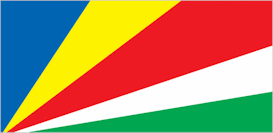Seychelles - Corruption
 Years of socialist-oriented economic policy characterized by price, trade and foreign exchange controls, a prominent role for parastatal companies, and robust debt-funded development spending led to rapid economic development, but also created serious economic imbalances. These problems included large fiscal and external deficits and mounting debt arrears, which contributed to the persistent foreign exchange shortages and slow growth of recent years. Persistent and widespread press reports indicate that high-level corruption contributed substantially to these problems.
Years of socialist-oriented economic policy characterized by price, trade and foreign exchange controls, a prominent role for parastatal companies, and robust debt-funded development spending led to rapid economic development, but also created serious economic imbalances. These problems included large fiscal and external deficits and mounting debt arrears, which contributed to the persistent foreign exchange shortages and slow growth of recent years. Persistent and widespread press reports indicate that high-level corruption contributed substantially to these problems.
The law provides criminal penalties for conviction of official corruption, but the government did not always implement the law effectively, and officials sometimes engaged in corrupt practices with impunity. The World Bank’s Worldwide Governance Indicators reflected corruption was a problem.
The Seychelles’ Penal Code provides a legal framework for combatting corruption. In 2016, the GOS established the Anti-Corruption Commission (ACC) with a mandate to investigate, detect and educate on the issue of corruption. A CEO has been appointed to the ACC, but it is still not fully functioning as of April 2017. Seychelles signed the UN Convention against Corruption in February 2004 and ratified in March 2006. Seychelles is not party to the OECD Convention on Combating Bribery of Foreign Public Officials in International Business Transactions.
In 2003, the government of Seychelles published the Public Service Code of Ethics and Conduct, the stated purpose of which is to provide guidance to public sector employees on the standards of behavior required of them. The Public Officer’s Ethics Act of 2008 prohibits personal enrichment through public office, defines and outlaws bribery, provides guidelines for avoiding conflict of interest, and mandates declaration of financial assets for public officials including members of the National Assembly. The government does not require private companies to establish internal codes of conduct.
The constitution provides for an Ombudsperson, but in practice the Ombudsperson has not been proactive in investigating allegations of corruption. However, the National Assembly appointed a new Ombudsperson in March 2017. Also, a local chapter of Transparency International, Seychelles Transparency Initiative, was set up in 2017.
|
NEWSLETTER
|
| Join the GlobalSecurity.org mailing list |
|
|
|

